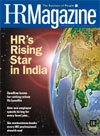 The purchase, sale, acquisition, reorganization and spin-off of companies-commonplace today-has put another wrinkle into managing non-compete agreements. Companies should be keenly aware of how such structural business decisions affect restrictive covenants they may have in force with their employees or those that may cover employees of an acquired company.
The purchase, sale, acquisition, reorganization and spin-off of companies-commonplace today-has put another wrinkle into managing non-compete agreements. Companies should be keenly aware of how such structural business decisions affect restrictive covenants they may have in force with their employees or those that may cover employees of an acquired company.
When new employees are brought into a company as the result of an acquisition, it is sometimes difficult to get them to sign non-competes in a timely fashion. The purchase-and-sale agreement between the two companies, in fact, might stipulate that there will be no change in their employment terms.
An acquisition is a critical time for retaining employees, however, and employees of the acquired company may see that as a prime opportunity to leave and start their own businesses. Accordingly, the acquiring company is well-advised to exercise due diligence to determine what non-compete agreements may or may not exist with key employees at the acquired company.
Courts generally allow companies to assign restrictive covenants to a successor-in-interest when a business is sold or another change in control occurs. This is especially true when the change in ownership places no additional burdens on the employee.
Nevertheless, companies always should consider including an express assignment clause in their restrictive covenants to cover potential changes in ownership or control. Such a practice can even add to a company's attractiveness as an acquisition target. On the other hand, a successor company on the receiving end of non-competes that contain assignment clauses still may be served best by asking the acquired employees to sign new non-compete or non-disclosure agreements to ensure the company's adequate protection.
Stephen L. Richey is a partner in Thompson Hine LLPs Labor and Employment practice group in Cincinnati.
Advertisement
An organization run by AI is not a futuristic concept. Such technology is already a part of many workplaces and will continue to shape the labor market and HR. Here's how employers and employees can successfully manage generative AI and other AI-powered systems.
Advertisement


